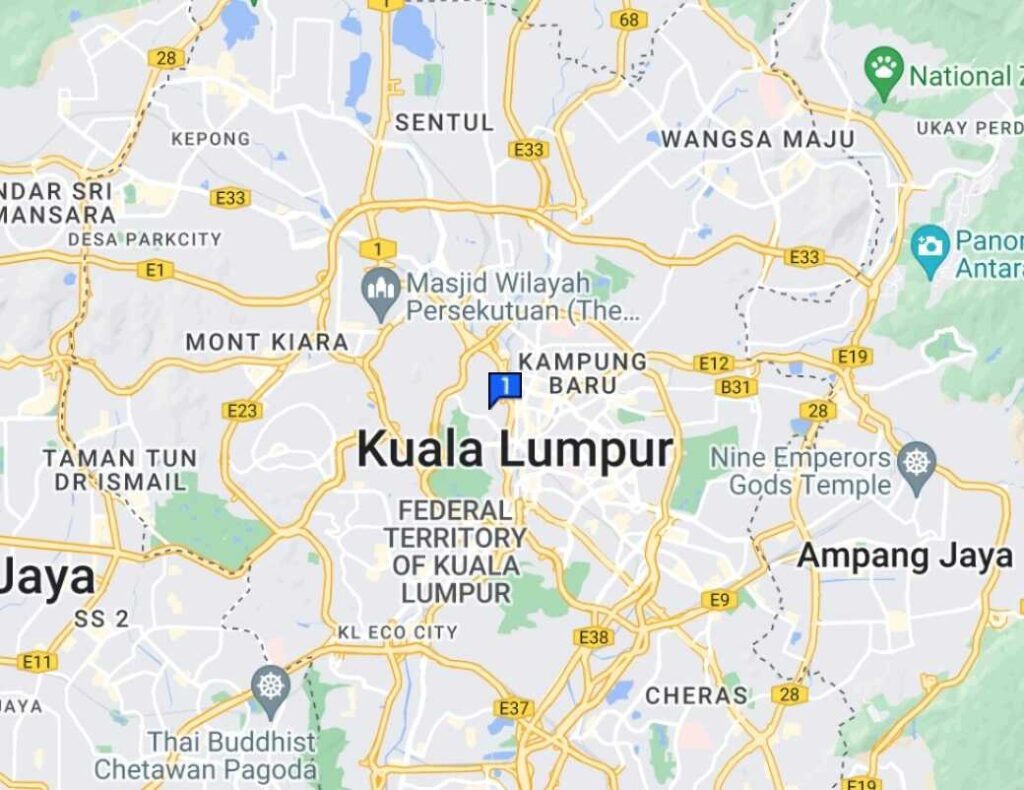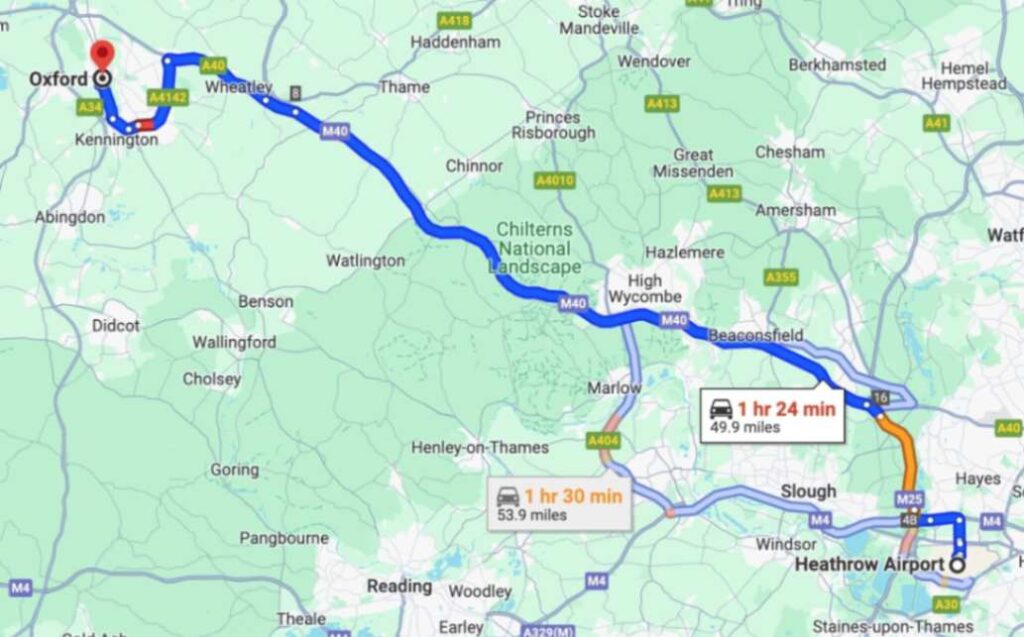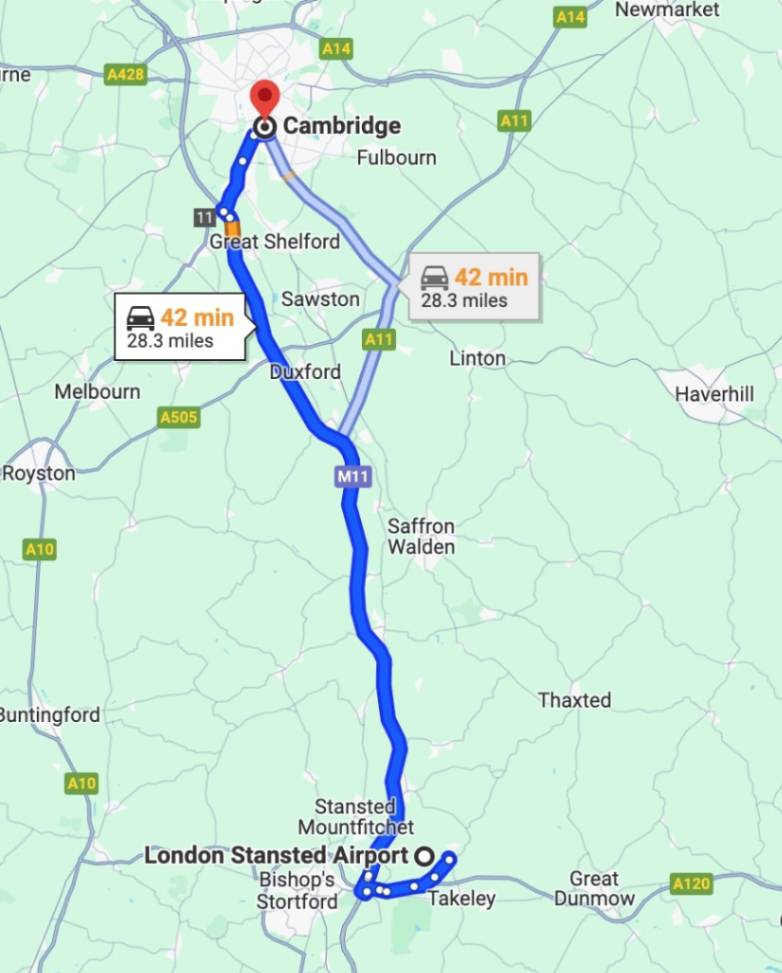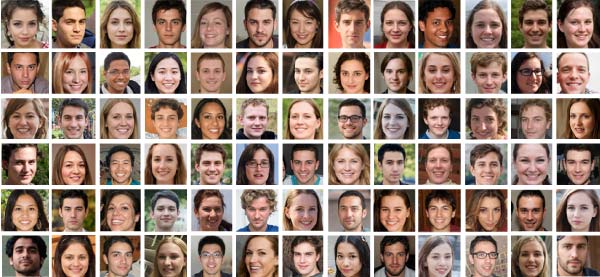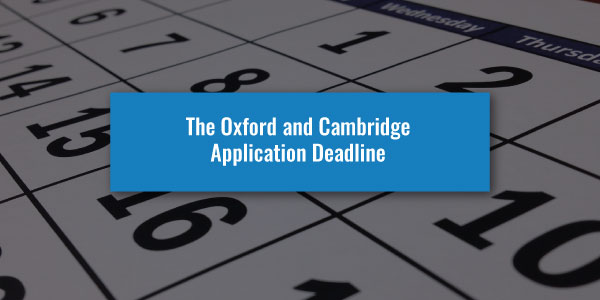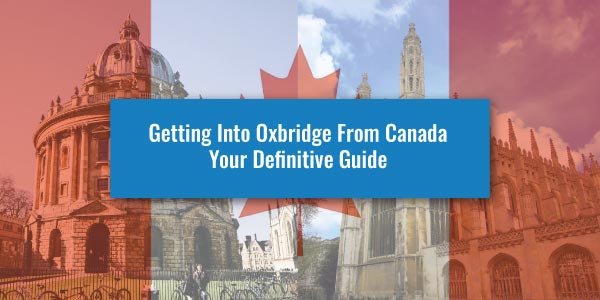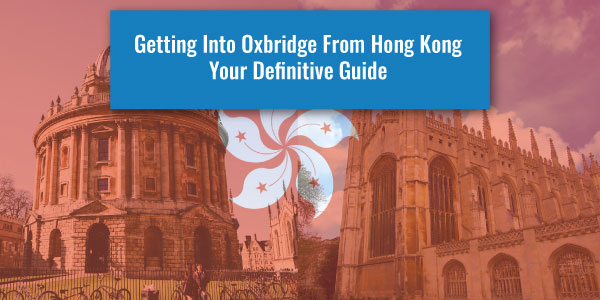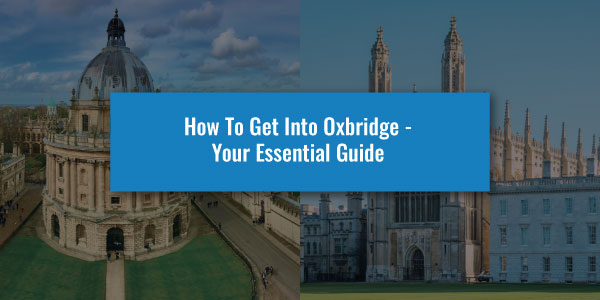
Applying to any UK university from overseas is a difficult process, but it’s especially hard for the University of Oxford and the University of Cambridge (together known as Oxbridge). If you’re applying to Oxbridge from Malaysia, you need to be well-prepared to build a competitive application and have a good chance of success.
In this guide, we’ll explore the full process of applying to Oxford or Cambridge from Malaysia, from the initial steps to leaving for the UK.
To help, we’ll follow the journey of Cheong, a UniAdmissions tutor from Malaysia who successfully earned his offer to study Engineering Science at Oxford. Hearing his experiences of the process will help you understand what you need to be prepared for to find success, so read on if you to secure your place at Oxbridge!

Cheong
Oxford Engineering Sciences Student
Should You Apply To Oxbridge From Malaysia?
The first step any university application will have to take is deciding to study. Some important questions to ask yourself include:
- Is University the right path for me?
- What do I want to study?
- What career path am I looking for in the future?
- Where do I want to study? (Both university and country)
- How do I want to learn?
- Am I determined/confident enough to get a place?
Many of these questions are universal for all university applicants, no matter where they come from, but applying to Oxbridge from overseas poses many challenges, as well as many benefits.
Challenges of Applying To Oxbridge From Malaysia
Acceptance Rates
Acceptance rates at Oxbridge are some of the lowest in the world (Oxford – 13.9%, Cambridge – 16.6%) due to how many applicants each university gets annually (over 20,000 undergraduate applications each year). These rates are even lower for international applicants, sitting at 7.6% for Oxford and 10.9% for Cambridge in 2023.
In 2023, Cambridge saw 268 applications from students in Malaysia. Of these, only 21 were admitted (7.8%). Oxford hasn’t disclosed its Malaysian acceptance rate, but we know that it received 752 applications between 2021 and 2023. With this data, it’s safe to assume that only 8% of Malaysian applicants successfully earn their place at Oxbridge each year.
Admissions Process
As we’ll soon see, the admissions process for Oxford and Cambridge is more in-depth than many other universities, especially for the most popular courses. As well as the standard application form, you’ll need to complete admissions tests, multiple interviews and more before an offer is considered.
This leads to a lot of time spent preparing for each step, which can become overwhelming if you’re not fully driven to achieve success. As well as this, minimum grade requirements are also very high so you’ll need to ensure you’ve balanced your application with your regular studies. Before deciding to apply, ensure you’re fully aware of everything that will be required of you in your application.
Cultural Differences
Coming from Malaysia to the UK will be a massive change for most students. While this isn’t always a bad thing, it’s important to consider that it’s common for international applicants to feel homesick for weeks, or even months, after arriving. This is especially true at Oxbridge, which requires students to adhere to certain rules and traditions that are hundreds of years old.
As well as this, the feeling of arriving as a Malaysian national may be isolating as so few applicants from Malaysia are accepted each year.
It may be challenging to connect with people on your course or make connections with other Malaysian students, although many of these negative feelings will be eased as you spend more time in the UK, become accustomed to the lifestyle and connect with those from your college and course.
Each university also houses a Malaysian Society for students, so this will definitely be worth considering when you arrive.
Fees
One of the biggest barriers to applying to Oxbridge from overseas is the fees. Fees have gradually risen over the years to the point where attending university in the UK can cost over 1,000,000 RM. At Oxford, annual fees range from around 198,000 RM (£30,050) to 280,000 RM (£48,620) per year. Cambridge charges between 154,400 RM (£25,734) to 403,000 RM (£67,194) per year.
Bursaries are available in certain cases, but these are fairly limited and highly competitive.

Benefits of Applying To Oxbridge
World-Class Teaching
If you’re considering applying to Oxbridge, it’s likely because of the reputation each university has received over its centuries of existence. Oxford and Cambridge are two of the highest-ranked universities in the world and offer a teaching experience unlike anywhere else.
If the Oxbridge education style matches what you’re looking for in a university, you won’t be disappointed when you arrive. The reputation they garnered is fully justified due to their unique tutorial/supervision-based teaching style, expert faculty, cutting-edge facilities, world-leading research programmes and much more.
The Oxbridge Experience
Studying at Oxbridge is truly a unique experience compared to any other university in the world. This can be tough to adjust to at first, but those who do say that the Oxbridge experience is truly amazing and enhanced their time at university.
The Oxbridge experience can be felt in everything, from the teaching style to the accommodation, food and social activities. Although many old-fashioned traditions are upheld, Oxford and Cambridge are both very modern as well and extremely welcoming to those from other cultures.
Graduate Prospects
Studying at Oxford or Cambridge gives students a massive boost in their employment options, no matter where in the world they seek work. Oxbridge graduates are very appealing to employers, so the chances of securing higher paid and more senior positions at an early age are increased.
Why Apply In The UK Over Malaysia?
Malaysia is home to some fantastic universities, including Universiti Malaya and Universiti Sains Malaysia (USM). However, there are many reasons why you may wish to apply to the UK over Malaysia.
It may be that you wish to see more of the world, you may not be satisfied with the university options available to you there or you may wish to enter a field that has stronger connections in other countries. University rankings may also be an influence, as Malaysian universities don’t tend to rank as high as the top UK institutes in global rankings (although this isn’t too important when choosing your university).
No matter your reasoning, it’s important that you choose your university options because of your personal preference and desire, not because of external pressure or because of the rankings and reputations universities receive.

The same is also true in regards to choosing Oxbridge over other universities, both at home and in the UK. While it’s good to be determined in your application, it’s important to understand that the chances of success are very low and to have other options prepared.

If your mind has been made up and you are determined to apply for Oxford or Cambridge, then it’s time to move on to the first steps of your application!

We support Oxbridge applicants from all over the world to get their Oxbridge offer
Our Oxbridge Programmes are suitable for anyone who is dedicated to getting their offer at Oxford of Cambridge, no matter where you’re from. Our students have access to everything they need to prepare for each stage of the admissions process.
This includes one-to-one tuition, hundreds of preparation materials, live courses, unlimited Personal Statement/essay marking and much more. Our support is suited to your needs to ensure you get the most of it.
Discover our Oxbridge Programme by clicking the button below to learn how you can enrol and triple your chances of success.
Getting Into Oxbridge From Malaysia - First Steps
Before you can begin building your application, you’ll need to conduct research as there’s a lot of understanding about Oxbridge. Considering things carefully is crucial to ensure you’re making the right decision for your future.
Choosing a Subject
One of the first things to do is to determine what you actually want to study. If you know exactly what you want to study, then make sure that Oxford or Cambridge teach it. Their course selection is somewhat limited and lacks more specific degrees and artistic courses (other than Music and Fine Arts).
If you have an idea of what you want to do in the future, then research what courses can get you on that path. If Oxbridge offers one of these courses then ensure it looks appealing to you.
If you’re entirely unsure of what you want out of your studies, then you need to seriously consider what you want from the future and if Oxbridge is right for you. Successful Oxford and Cambridge applicants have a clear view of what they want from their studies and can communicate it in their Personal Statement and interviews. If, at this stage, you’re still unsure, you likely won’t find success in your Oxbridge application.
Oxford or Cambridge?
Some applicants will make this decision before choosing their subject, as many subjects are taught at both universities. This is another major choice to make as, while both offer the same degree of quality teaching, the experience of attending each can be different in many subtle ways.
Oxford is often seen as a more humanities-focused university, while Cambridge is better for STEM subjects. This isn’t strictly true, but there are certain courses that each university is known for that match this point (PPE at Oxford and Natural Science and Cambridge). If you want to learn more about all of the differences between the universities, check out our Oxford vs Cambridge guide.
Be aware that no applicant can apply for both Oxford and Cambridge in the same year, so you will have to make this decision.
Alternative Choices
As you’ll see when we cover the UCAS application, any applicant for UK universities has the right to choose up to 5 university choice to apply for. Since you can only apply to one Oxbridge university, you’ll have four other choices to pick. There’s no additional fee for adding more universities and many won’t require additional steps, so there’s no reason not to pick these to give yourself insurance options.
Other options to consider include G5 Universities and Russell Group Universities, both of which are groups of highly-rated institutions. If you’re worried that your application may not be competitive enough, look at universities with lower entry requirements. Wherever you pick, ensure that you’re choosing options that you would want to study and live at.
If you’re only interested in applying to the UK because of Oxbridge, be sure to research other university options in case you change your mind. If you still don’t have any interest, you may still want to apply to four other universities to give yourself the option.
College Selection
This is a big consideration for any Oxbridge applicant and something you’ll want to spend a fair amount of time researching. The Oxbridge Collegiate system is fairly unique in the UK and is an important consideration for your application.
Both Oxford and Cambridge are made up of unique colleges (over 30 are active at each university), which each act as independent bodies within the university. Colleges are responsible for many aspects of student life, including accommodation, catering, social events and various aspects of teaching.
Colleges are also responsible for admitting students via admission testing and interviews, so as well as applying to Oxford or Cambridge, you’ll also need to apply for a specific college. With so many to pick from, it’s important to do your research and find one that suits you. Things to consider at each college include:
- Location
- Accommodation
- Subjects covered (not every college accepts applicants from every course)
- Values/Traditions
Your decision should be based on what you’re looking for out of a college, as strategic applications don’t tend to work in applicants’ favour. There aren’t any specific international colleges for students, so you’ll be welcome at any college you choose to apply to.

Read about all 70 colleges within our Oxford and Cambridge College Guides:

Application Support
Before we go into the specifics of the application process, it’s important to consider the support options that are available to you. Support options are generally split into two categori
School Support
As well as teaching you the required curriculum for your exams, your school should also be ready to support you with your university applications, both at home and internationally. Most teachers will have a better understanding of applications for Malaysian universities, so you may find it hard to get comprehensive, dedicated support for Oxbridge applications from your school.

Even if some support is available, many teachers won’t have a good understanding of the specific requirements for Oxbridge applications due to how uncommon they are. This can be frustrating, but there are other options available.
External Support
Outside of school, many services and resources have been created that thoroughly cover the Oxbridge admissions process. These can include textbooks, videos, admissions test question banks, tuition services, live courses and more. Whether these are free or require a fee will vary, but the most effective and in-depth resources will typically need to be paid for.
Where possible, try to seek out packages that combine multiple support options together, as this will save you time on research and organisation, as well as keeping the education you receive consistent. You may also be unsure if you want to work with a tutor from the UK, who may have a better grasp on the subtleties of Oxbridge, or a tutor from Malaysia, who will have a better understanding of your circumstances. Some services allow you to choose, so this is something to consider.

With all that in mind, it’s time to begin exploring the actual application processes for Oxford and Cambridge
Applying From Malaysia - UCAS Applications
No matter where you’re applying from in the world, all undergraduate university applications in the UK are required to go through the University and Colleges Admissions Service (UCAS). UCAS is an organisation that was set up to centralise all university applications in the UK using an online system.
The UCAS application form consists of multiple parts, including university selection, submitting personal details, providing your education history, submitting an academic reference and writing a Personal Statement.
This system has various pros and cons to consider:
UCAS Pros
- You will only need to fill out your personal details and education history once.
- The system is digital and allows you to make amendments at any time until the submission deadline.
- Submitting your application is easy to do, no matter where in the world you’re based.
UCAS Cons
- You can’t personalise your application for each university.
- You’re dependent on having access to a computer/phone and a stable internet connection.
- You're limited to just five university applications in a single year.
UCAS registration typically opens in mid-May with application submissions opening on September 3rd in 2024. The standard UCAS application deadline is January 29th 2025, but all Oxbridge and Medicine applicants will need to submit their application by October 15th 2024.
UCAS charges a fee of 165 RM (£27.50), which covers all of the application services offered. This fee will be increased to 170 RM (£28.50) in 2025.
To apply through UCAS, you’ll need to create a UCAS account, which will require your personal details, details about your school (including its UCAS centre number) and the payment of your fee. Thankfully, this process is fairly simple and students rarely have problems with it.

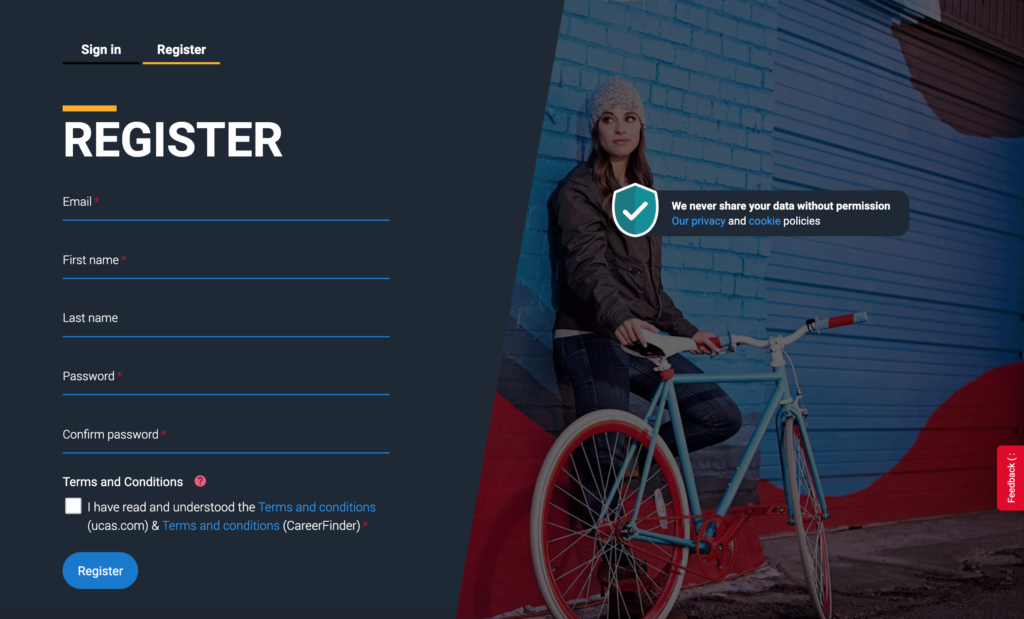
UCAS Reference
As mentioned before, an essential part of your application is the academic reference. This will require a teacher or member of your faculty to answer three questions relating to your studies and abilities. One of these questions relates to special circumstances that may impact your application, so be sure to speak with your referees to explain anything you would like included in their reference.

Applying From Malaysia - Personal Statement
One of the biggest aspects of the UCAS application is the Personal Statement. This is a document required to be written by all applicants that explains why they should be offered a place at their chosen universities.
The Personal Statement is included within your UCAS application, so it will need to be submitted digitally by October 15th 2024. The UCAS system features a dedicated space for you to put your Personal Statement, though it’s recommended to write your drafts on external software.
One of the main elements admissions tutors are looking for is an understanding of what you’ve learned during your experiences and how you’ve grown to be a suitable candidate. This is done through self-reflection, so it’s important that you research how to convey yourself well in your writing. Getting your drafts reviewed by a tutor or family member is also valuable, especially if they have experience studying in the UK.
Don’t try to take shortcuts when writing your Personal Statement as there are systems in place to catch out techniques like plagiarism and AI-generated content. The Personal Statement needs to come from your own thoughts as that’s the only way for it to effectively represent you as an applicant. However, we do recommend reading examples from successful Oxbridge applicants to gain inspiration. Discover our collection below:
The Personal Statement isn’t a test of your English proficiency, so you don’t need to worry about everything being fully perfect. However, if you’re applying to Oxbridge, your understanding of English should be at a high level in order to effectively study your course (we’ll learn more about English Language Proficiency Tests soon). Learn more about the UCAS Personal Statement in our Ultimate Guide.
I then listed down all my memorable extra-curricular and super-curricular activities that further galvanised my interest in engineering as well as memorable experiences in which I had significant takeaways on either how to be a better engineer or person.
After all that, I finally set about writing a brief outline of my personal statement and completed my first draft of my personal statement. I then asked a couple of family members (including my uncle) to read my personal statement and provide some feedback, after which I made some edits to my personal statement. This process from start to end took me around 1.5 months.”

Personal Statements are important for most university applications as it’s the only chance an admissions tutor will get to see each candidate as an individual outside of their grades. However, at Oxbridge, Personal Statements are heavily de-emphasised in favour of the other elements of their application processes. It’s still important to put effort into your work, but be aware that your Oxbridge placement likely isn’t going to be decided by your Personal Statement.
Be aware that Personal Statements will be changing in 2025 to a more structured format. Learn more about it in our guide to UCAS Personal Statements in 2025.
Access "The Big Book Of Oxbridge Applications" For FREE
If you want to get into Oxford or Cambridge, you need to be prepared for everything required of you. Download The Big Book Of Oxbridge Applications for free now to learn about the entire process through over 350 pages, where you’ll find:
- Over 40 admissions test practice questions
- 28 example Oxbridge Personal Statements
- Interviews with Oxbridge students and graduates
- Additional downloadable resources
Fill in your details below to claim your digital copy today!
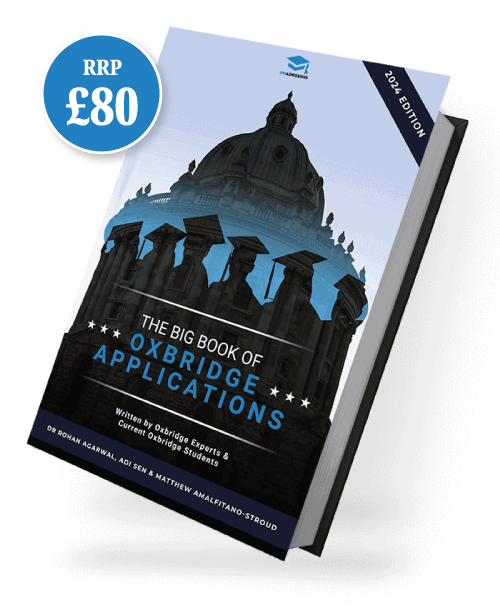
Getting Into Oxbridge From Malaysia - Oxbridge Admissions Tests
We’ve now made it to the elements of the application process that are (mostly) exclusive to Oxbridge in the UK. Firstly is admissions tests, which are mainly used by Oxbridge, medical schools and select law Schools in the UK.
Unlike some countries, admissions testing mostly isn’t standardised (excluding undergraduate medicine) and will vary based on what subject you’re applying for. At Oxford and Cambridge, there are a wide selection of admissions tests, including:
Oxford Admissions Tests
- Mathematics Admissions Test (MAT): Required for Mathematics and Computer Science (and joint courses)
- Physics Admissions Test (PAT): Required for Physics, Engineering and Material Sciences
- Thinking Skills Assessment (TSA): Required for PPE, Economics & Management, PPL and more
- Biomedical Sciences Admissions Test (BMSAT): Required for Biomedical Sciences
- Ancient History and Classical Archaeology Admissions Test (AHCAAT): Required for Classical Archaeology and Ancient History
- History Admissions Test (HAT): Required for History (and course variants)
- Modern Languages Admissions Test (MLAT): Required for Modern Languages and European & Middle Eastern Languages (and joint courses)
- Classics Admissions Test (CAT): Required for Classics (and joint courses)
- Philosophy Test (PhilAT): Required for Philosophy & Theology
Cambridge Admissions Tests
- Engineering and Science Admissions Test (ESAT): Required for Natural Sciences, Engineering, Veterinary Medicine and Chemical Engineering & Biotechnology
- Test of Mathematics for University Admissions (TMUA): Required for Computer Science and Economics
- History Admissions Assessment (HAA): Required for History (and course variants)
- Modern and Medieval Languages Admissions Assessment (MMLAA): Required for Modern & Medieval Languages and Asian & Middle Eastern Studies (and joint courses)
- English Admissions Assessment (EAA): Required for English
- Classics Admissions Assessment (CAA): Required for Classics
- Linguistics Admissions Assessment (LAA): Required for Linguistics (and joint courses)
- Philosophy Admissions Assessment (PAA); Required for Philosophy (and joint courses)
Oxford & Cambridge Admissions Tests
Be aware that this is the list of tests for 2024. Previously, other tests were used and then removed, such as the BMAT (Medicine), NSAA (Natural Science), ENGAA (Engineering) and ELAT (English), so be aware of which tests are still active when researching.
What Are The Oxbridge Admissions Tests?
Admissions tests can range from multiple-choice quizzes to essay writing tasks and more. Most tests are designed to be highly relevant to the subject you’re applying for, though some aim to test more general skills instead.
How Do I Register For My Admissions Test?
For the most part, admissions tests at Oxbridge are handled by Pearson VUE, an organisation that specialises in computer-based testing. This means that all of the primary admissions tests are digital and must be sat at a dedicated Pearson VUE testing centre.
Currently, there’s only one registered Pearson centre, located in the centre of Kuala Lumpur. However, there are conflicting sources stating that over 25 authorised testing centres are currently open, so be sure to research options in your local area. If you have no means of getting to a centre, home testing can be providing instead.
Registering for your admissions test is done through one of Pearson VUE’s dedicated online portals, you can find the relevant portal for your exam on its official webpage. Admissions tests sometimes have a fee of up to 780 RM (£130), though most of Oxford’s admissions tests are free.
For some courses at Cambridge, you will be required to complete an admissions test directly before your interview. These are handled by Cambridge directly so they can be completed at home. These do not have a fee attached.
What Score Do I Need On My Admissions Test?
Neither Oxford nor Cambridge implement minimum scores for their tests, so while you should aim to get as high a score as possible, your application will still be considered if you don’t score well. With how competitive Oxbridge admissions are, a high admissions test score is essential for having a good chance of success, but there are instances where applicants were admitted with lower scores.
Preparing For Your Admissions Test
To ensure you get a good score on your test, it’s important to begin preparing at least 6 weeks in advance, although we recommend starting far sooner than this. Test preparation can come in many forms and will differ depending on what test you’re taking, but it’s vital that you’re familiar with the test format, required knowledge and techniques for each question. Admissions tests are a test of your speed as much as your skill, as many will have tight time restrictions.
The most effective way to prepare for an admissions test is to take on practice questions and mock exams. While it’s fine to start off easier, you should be working your way up to answering questions quickly and getting more and more questions correct. Question banks and past papers are essential for doing this, although additional support like tuition and performance tracking can have a significant difference on your performance.
If your admissions test features a lot of required knowledge (such as the PAT or ESAT), then be sure to revise this knowledge too to ensure that you’re answering the questions in the test correctly. Live courses are available for many admissions tests that condense hours of research, studying and practice into just one or two-day sessions. These can be incredibly helpful, although independent study and practice are still essential.


English Language Proficiency Tests For Oxbridge
For any applicant whose first language isn’t English, a qualification in an English Language Proficiency test is required to be submitted. This test doesn’t need to be completed before you submit your application but can be completed after you’ve received your offer. These will typically need to be submitted by the end of July.
There are multiple tests eligible for submission to Oxford and Cambridge, though the most common is the International English Language Testing System (IELTS). Each of these tests will see you completing exercises relating to reading, writing, listening and speaking, testing your proficiency in each area of the English language.
Minimum scores are implemented for each of these tests. For example, the IELTS requires a minimum score of 7.5, with at least 7.0 in each component. You can find out everything you need to know about these tests in our English Language Proficiency Testing guide, so be sure to check it out.

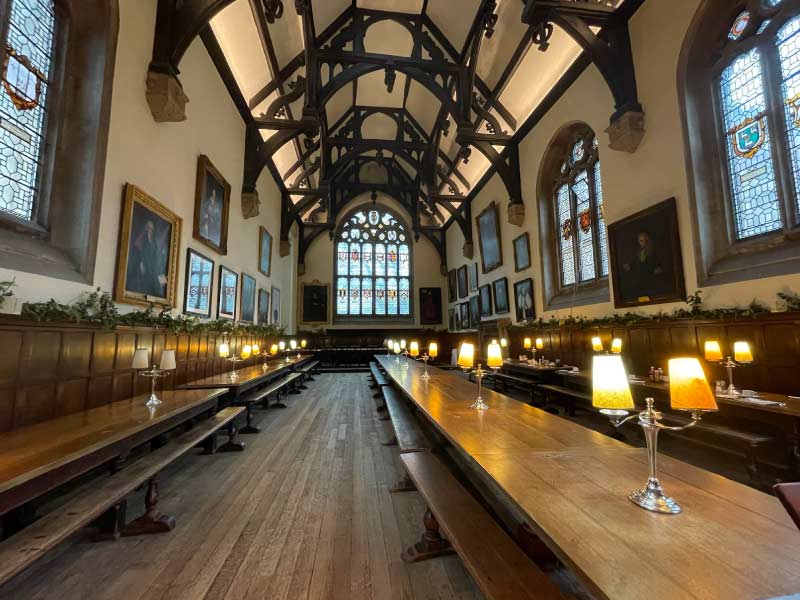
Additional Oxbridge Requirements
During this period of your applications, there are two additional tasks that you may be required to complete, depending on where you’re applying and what course you’re applying for.
Written Work
Some courses at Oxbridge don’t require an admissions test. In many cases, they will instead require you to submit some form of work that can be reviewed by the admissions team. This is usually an essay or other form of written work, although in some cases it can be artwork or musical compositions (for Fine Art/Architecture and Music respectively).
Both universities usually ask that the work be a piece that has been academically marked, meaning something you have submitted as schoolwork. This isn’t always the case and you’ll sometimes be asked to write something specifically for them, but marked work is the most common request.
All work needs to be submitted digitally, so typed work is preferable while handwritten work will need to be scanned into your computer and sent off. You can learn more about written work, including which courses require it, in our Oxbridge Written Work Guide.
My Cambridge Application
As the name suggests, the My Cambridge Application (MyCApp) is a requirement exclusive to Cambridge undergraduate applicants.
The MyCApp is an additional online application form that is submitted exclusively to Cambridge. It follows a similar format to the UCAS form, requiring applicants to submit personal details, education history and even a short Personal Statement.
Some applicants will also need to provide a transcript of their current qualifications, which should be provided by your school. This isn’t a requirement if you’re studying A-Levels or International Baccalaureate.
The MyCApp offers you a unique opportunity to send a customised Personal Statement to Cambridge, so it’s important that you plan your writing out to make the most of this. The space you have is much shorter (around 1,000 characters,) so be sure to make the most of it.
The MyCApp requires a fee of 360 RM (£60) for any applicants not based in the UK or Ireland. This form needs to be submitted by October 22nd 2024.
Triple your chances of Oxbridge Success with support from UniAdmissions
At UniAdmissions, we are specialists in getting applicants from across the globe into Oxbridge, UK Medicine and more. With our expertly crafted curriculum, extensive preparation materials and innovative Portal, we have developed programmes that cater to applicants of over 30 subjects across Oxford, Cambridge and more.
Discover our Oxbridge Programmes by clicking the button below to learn how you can enrol and triple your chances of success.
Getting Into Oxbridge From Malaysia - Interviews
The final major step of the Oxbridge application process is the interviews. Interviews take place in the first three weeks of December, with invitations being sent out via email up to three weeks prior. This doesn’t give you much notice, but it’s important to be preparing for your interview well before you get the invitation.
Interview invitations are offered to shortlisted applicants based on their application up to this point. This primarily includes admission test scores and predicted grades, though the Personal Statement and references also play a small part. Oxford are known to only interview around 40% of their applicants, while Cambridge is more generous, with 70% of applicants being interviewed.
All Oxbridge interviews are conducted as traditional panel interviews with 2 – 3 interviewers. Each session lasts roughly 35 – 40 minutes, in which you’ll be answering questions, solving problems presented to you and engaging in conversation with the admissions tutors from the college. Applicants can be expected to sit anywhere from one to four interviews in a standard application.
Most Oxbridge applicants from outside the UK will be interviewed remotely, so you won’t need to travel to the university. At Oxford, all interviews are conducted remotely, whereas a few Cambridge colleges offer in-person interviews. Among these, some allow non-UK applicants to opt-in to an in-person interview, while Emmanuel and King’s College require all applicants to attend in person, although they will consider exceptional circumstances.
Timings are adjusted where possible to make things more convenient for you in your time zone, so expect to be attending your interviews in the afternoon. Remote interviews at Oxford take place on Microsoft Teams, while Cambridge uses Zoom. Depending on the college and subject, you might need to use a virtual whiteboard during the interview, so be prepared for this by practising with software that offers this feature.
In terms of preparation, the two most effective things you can do are to research and develop your interview techniques and to engage in mock interviews. Both of these preparation methods will help you increase your confidence and prepare yourself for common, difficult and weird questions. While you can never be prepared for everything that could be in an interview, you can build up your skills to be able to handle anything that comes up.

On the day of the interview, it’s important to ensure you have access to a quiet, well-lit location with access to a stable internet connection. You also need to ensure you have a good-quality microphone and camera so that you an effectively communicate with your interviewers. Don’t forget to ensure you have the necessary software installed to enter the virtual meeting room. If you don’t have access to a space like this, your school should be able to provide one.
Most importantly, try your best to remain calm before you start. The nerves cannery easily get to you, which is normal but can impact your performance if you don’t take measures to relax and feel confident.

In some cases, applicants are required to attend more interviews in January. This is usually if the college they applied to rejected them but other colleges were interested in reviewing their application (this is called the Winter Pool at Cambridge). If you’re invited to another interview, it’s a sign that Oxford/Cambridge sees you as a viable candidate and wants to find a college that you would fit in.
After the final interview is completed, your Oxbridge application is officially finished! The next step is to wait for your offer to come in…

Getting Into Oxbridge From Malaysia - Your Offer And Beyond
Offers from Oxford and Cambridge are typically sent out in late January. This is much earlier than other UK universities, so any other courses you’ve applied for in the UK should be sending their offers by July at the latest.
Offers arrive via email initially, but physical letters are usually sent out too (these will arrive fairly late due to the shipping time). Your offer will confirm the details of your application, including the grade requirements you’ll need to meet to be admitted.
Once you’ve received your offer, you’ll need to log into your UCAS account to confirm it as your primary option. This will need to be done within a few days of receiving your offer as Oxford and Cambridge both expect to receive responses promptly. You’ll also have the option to reject the offer or select your offer as an insurance choice, but this isn’t recommended as your application will likely be withdrawn.
Alongside your university offer, you’ll also receive an offer confirmation from your college. This confirmation letter will include a variety of tasks you’ll need to complete in order to finalise your offer at the college.

Remember that an offer is far from guaranteed, so there’s a good chance you won’t get it, even if your application was fantastic, If this happens it’s fine to be disappointed. However, remember that this isn’t the end. If you applied to other UK universities, you still have up to four more chances to secure a place. If not, you can always reapply in the next admissions cycle.
Naturally, the moment you receive your offer is an incredibly exciting time, but the process isn’t finished yet. You may have gotten the offer, but now you have to meet the grade requirements, as well as complete any outstanding requirements and begin to plan your move to the UK.

Completing Your Exams
Depending on what exams you’re taking, you may need to achieve a different minimum grade based on the grade boundaries. However, one thing remains consistent throughout – you need to be well prepared for your tests to ensure you get the required grade.
Oxford Entry Requirements - Malaysia
A-Levels: AAA – A*A*A
STPM: AAA
International Baccalaureate: 38 – 40 (with 766 or 776 in Higher Level)
Cambridge Entry Requirements - Malaysia
A-Levels: A*AA – A*A*A
STPM: AAA
Matrikulasi: 3,80
International Baccalaureate: 40 – 42 (with 776 in Higher Level)
Note that any qualifications not listed are not accepted by the university.
It’s vital that you continue your school work during the application process rather than saving all of your revisions to the last few months or weeks. Spacing preparation out over a longer time will reduce stress and ensure that you have time to identify weaknesses and make improvements.

Once exams are complete, you’ll most likely feel a huge sense of relief. At the same time, it’s also a stressful period between now and results day. There’s nothing left to do to support your application, which means all you do is wait for your results to come in.
Depending on what qualification you completed your results can come from any time between May and August, meaning the wait will be worse for some than others. However, once that day comes, getting your results can be the happiest day of your life!

It’s amazing to think about this day, but it’s also important to consider what may happen if you don’t get the results you’re expecting. There are many ways this could go depending on where else you applied; you may have received offers from other universities in the UK (one of which may have been selected as your insurance choice), in Malaysia or another country. If so, and you have met their grade requirements, you’ll be able to attend one of these instead.
If you don’t have any other offers in the UK, you’ll have the option to enter UCAS Clearing, which gives applicants a second chance to gain a university slot after results have been released. Be aware that most popular UK universities will not offer places on clearing, so your options may be limited to places you hadn’t previously considered.
If you don’t wish to attend a different university, your other option is to re-apply in the next admissions cycle and work on an additional qualification in the meantime.
If you were able to secure your place, then congratulations! Now that you know you’re going to Oxford or Cambridge, the last thing you need to do is prepare to leave.

Leaving Malaysia For Oxbridge
Leaving home to attend university is chaotic and emotional no matter where you attend, but leaving for a university 10,500 km away is especially tough (but exciting!). There’s a lot to prepare before you go and many things you may be feeling.

Visas
Anyone without some form of UK citizenship will need to apply for a student visa in order to study in the UK. Typically, you’ll need to apply for a Tier 4 (General) student visa, which is available for any over the age of 16 who has been offered a place at a UK educational institute.
With this visa, you’ll be able to enter the UK up to one month before the course starts, meaning you’ll be able to leave anytime between late August and late September.
Requirements for the visa include a confirmed place at a university, a high level of English proficiency and evidence that you can financially support yourself during your studies. You’ll also need to provide various documents, including a passport, evidence of funding, confirmation of Acceptance for Studies (CAS) and assessment documentation.
Coming from Malaysia, you’ll also be required to complete a Tuberculosis screening and provide an Academic Technology Approval Scheme (ATAS) clearance certificate. Any documents that aren’t available in English will need to be translated at your own expense.
Medical Requirements
As previously stated, you’ll likely need to complete a Tuberculosis screening. Another recommendation is to seek out a meningitis vaccination, as university students are at high risk of catching this disease.
Scholarships
In some cases, you may wish to seek a scholarship if your financial situation would not allow you to otherwise study at Oxbridge. There are a variety of options provided both internally at Oxford and Cambridge, as well as external scholarships and bursaries (information about various options is available on the Oxford and Cambridge Malaysia Society websites).
For postgraduate studies, Oxford and Cambridge each offer the Khanzanah Scholarship programme, which fully covers tuition fees, monthly living expenses and travel costs.
Travel Arrangements
To get into Oxford or Cambridge, you’ll need to book flights to arrive in the country. You’ll most likely be leaving from Kuala Lumpur, although flights are also available from Penang, Johor Bahru and Kuching (at a higher price). The closest international airport to Oxford is London Heathrow, while the closest to Cambridge is London Stanstead.
From the airport, you can arrange either taxi or coach travel to enter the city. Travel from Heathrow to Oxford takes around 1 hour 30 minutes, while Cambridge is much closer to its airport and should only take about 30 minutes.
Packing
When it comes to what you should bring, it really comes down to personal preference. We wouldn’t recommend bringing lots of suitcases filled with everything you’ll need, as this will make your travel far more difficult. Instead, things like cookware (if your college offers self-catering), bedding and bathroom accessories can be purchased when you arrive.
Be sure to pack appropriate clothing for the climate in the UK, which is generally much colder than in Malaysia. It’s also appropriate to pack any technology, books or equipment required for your course (ensuring they meet safety standards for UK plane travel), although some things may need to be purchased when you arrive. Family mementoes are also a good idea to bring with you.
Saying Goodbye
One of the hardest parts about leaving for university is saying goodbye to your friends and loved ones. When studying within Malaysia, visiting home is much easier, even if you’re studying somewhere hours away. When studying abroad, the process of coming home is more complicated and expensive, so will be less frequent.
Therefore, it’s important that you make the most of your time in Malaysia before you leave. Visit those who are important to you to say your goodbyes. Focus on the positives during these visits (you’re leaving to study at one of the best universities in the world!), but appreciate that this may be hard for those who have looked after you since you were little.
The most important thing to remember is that this isn’t permanent. In most cases, you’ll still have at least two chances to visit home each year during the winter and summer breaks. As well as this, technology now allows you to video call anyone you like at any time of the day (though consider that most people at home will be asleep by 5 PM GMT!

Adjusting To The UK
One of the hardest parts about leaving for university is saying goodbye to your friends and loved ones. When studying within Malaysia, visiting home is much easier, even if you’re studying somewhere hours away. When studying abroad, the process of coming home is more complicated and expensive, so will be less frequent.
Join Societies
Oxford and Cambridge each have a wealth of societies and sports teams available for students, including the previously mentioned Malaysian societies. We’d recommend going at least one, so explore what options are available, including ones relating to your subject and any other interests you may have.
Interact with College Activities
This may be difficult to do if you’re a shy person, but it’s a great idea to interact with the many activities that each college organises for new students during the first few weeks of study. This includes Freshers Week, which provides plenty of informational and recreational events to take part in. Keep an eye out for specific international events too, as this is a great way to meet people in the same situation as you.
Explore
When you first arrive, your motivation for activity may be low if you’re nervous about what lies ahead. However, even if you don’t wish to interact with peers straight away, it’s still a good idea to leave your room and explore the city. Taking a walk is great for keeping healthy and it will let you discover plenty of interesting venues and landmarks across these two iconic places.
Don’t Stress About Work
In your first few weeks, you may feel the need to get your head down and begin your studies in full force. However, it’s alright to give yourself a week or two to settle in, especially if you’ve arrived a few weeks before classes start. Focus on enjoying the activities set out, meeting new people or just getting to know the new place that you’re in.

That covers the essential information you need to know about applying to Oxford or Cambridge from Malaysia. There are plenty more details to explore, so be sure to do your own research before starting your application (including exploring our library of Oxbridge application guides). Before we finish, here’s a final piece of advice from Cheong:

We hope this guide has been helpful to you, and we wish you the very best of luck with your application. If you would like to learn about how we can drastically improve your chances of earning your offer at Oxbridge, please visit our Oxbridge Programmes page and discover our truly effective support.
We support Oxbridge applicants from all over the world to get their Oxbridge offer
Our Oxbridge Programmes are suitable for anyone who is dedicated to getting their offer at Oxford of Cambridge, no matter where you’re from. Our students have access to everything they need to prepare for each stage of the admissions process.
This includes one-to-one tuition, hundreds of preparation materials, live courses, unlimited Personal Statement/essay marking and much more. Our support is suited to your needs to ensure you get the most of it.
Discover our Oxbridge Programme by clicking the button below to learn how you can enrol and triple your chances of success.

